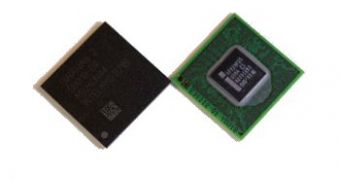With all that has been happening on the IT market, and the speed at which slates have gained reputation, Intel decided to speed up the development of its Atom CPUs, pushing them faster than Moore's Law dictates.
The Atom series of Intel central processing units is one which users will find in almost every netbooks out there, as well as some slates that haven't exactly been doing that splendidly as far as sales go.
Now, Intel used the opportunity provided by Computex 2011 to announce that it had made some changes to its roadmaps.
“Computing is taking many forms,” said Intel Corporation Executive Vice President Sean Maloney.
“Technology innovation is a catalyst, and we believe the changes Intel is making to its roadmaps, together with strong industry collaboration, will bring about an exciting change in personal computing over the next few years.”
Basically, the outfit has decided to start developing and releasing Atom processors faster than it originally intended.
Cedar Trail, the first 32nm netbook platform, will be built on the 32nm manufacturing process and is already in development, for fanless designs with various assets, like fast boot, wireless update and PC synchronization, Wireless Display, etc.
Also, Cedar trail products should be able to last for up to 10 hours on a single battery charge and will work under Google Chrome and MeeGo, not just Windows.
“The work Intel is doing with the Intel Atom processor roadmap, coupled with the significant changes we are making to our Intel Core processor roadmaps, will continue to enhance Intel’s ability to deliver complete hardware solutions with a choice of software platforms across a full spectrum of computing -- from back-end servers that power the cloud to the billions of devices that access the cloud,” Maloney said.
Intel has already shipped 100 million Atom processors and wants to quickly pass form 32nm to 22nm and even 14nm within the next three years.

 14 DAY TRIAL //
14 DAY TRIAL //